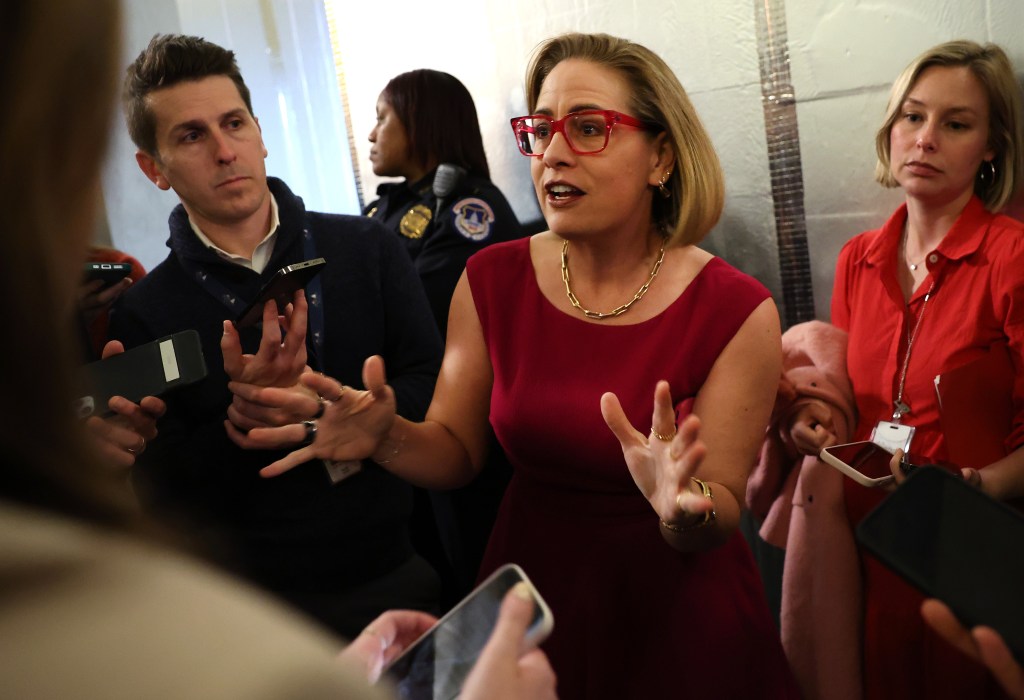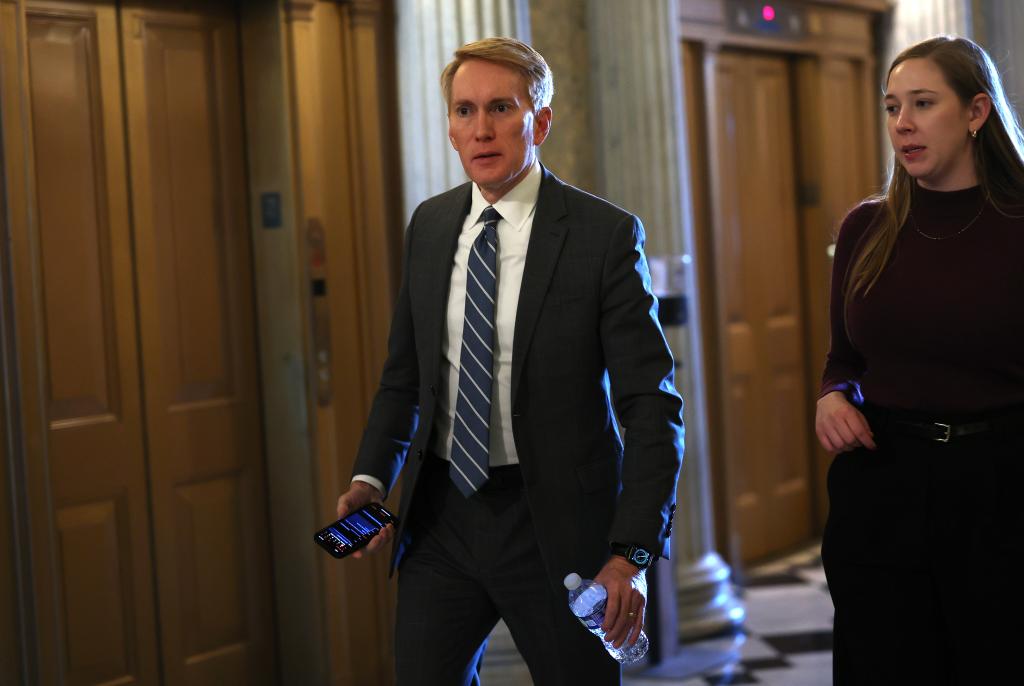Senate’s $118B border bill officially dead, as chamber readies smaller aid measure for Ukraine and Israel
The Senate’s $118 billion border deal officially crashed and burned Wednesday, as the upper chamber was ready put the nation’s migration crisis on the back burner by prepping a bill that would provide $95 billion in military aid to Ukraine, Israel and Taiwan.
Almost exactly 24 hours after Minority Leader Mitch McConnell (R-Ky.) told reporters the supplemental spending package had “no real chance” of becoming law, the measure came up 11 votes short of clearing the Senate’s 60-vote filibuster.
Democrats Bob Menendez of New Jersey, Elizabeth Warren and Ed Markey of Massachusetts and Alex Padilla of California joined 44 Republicans in voting against advancing the bill, along with Bernie Sanders (I-Vt.) and Majority Leader Chuck Schumer (D-NY), who voted “nay” for procedural reasons in order to permit himself to advance the bill later.
Joining 45 Democrats in voting to advance the bill were GOP negotiator James Lankford (R-Okla.) and his fellow Republicans Susan Collins of Maine, Mitt Romney of Utah, and Lisa Murkowski of Alaska.
“Republicans have said they can’t pass Ukraine without border [security]. Now they say they can’t pass Ukraine with border. So today, I’m giving them a choice. They can show America where they stand and what they stand for,” Schumer said on the Senate floor before the vote.
Right after the border deal flopped, Schumer moved to advance a $95 billion national security supplemental. However, that vote was held open for several hours as Republicans attempted to negotiate parameters for an amendment process.
Republicans floated various ideas — including amendments that would mirror the House’s Secure the Border Act of 2023 and potentially separate funding designated for civil and military aid to Ukraine, according to several sources.
Since last October, Republicans have demanded any supplemental package that includes aid to war-torn Ukraine be paired with deep immigration reforms.
On Sunday, Senate leaders unveiled the deal hammered out by Lankford, Sen. Chris Murphy (D-Conn.) and Sen. Kyrsten Sinema (I-Ariz.), which included $20 billion set aside for border measures, including $650 million for border wall construction and a Title 42-style authority to shut down crossings when migrant encounters exceeded a 5,000-per-day average over a one-week period.
Almost immediately, conservative Republicans said the deal didn’t go far enough, with House GOP leadership declaring Monday that taking it up would be a “waste of time.”
Democrats led by President Biden, have accused former President Donald Trump of orchestrating Republican opposition to the agreement in order to keep the border a live issue ahead of the Nov. 5 election.
“It must be said that the 180-degree turn Republicans have done on the border is one of the most stunning things I’ve seen Congress in a long long time do,” Schumer chided. “The damage Republicans have done this week to their credibility cannot be understated.”
Sinema, the former Democrat who will face a tough three-way fight to keep her seat later this year if she decides to run, said the behavior on display from the GOP had been “shameful.”
“Less than 24 hours after we released the bill, my Republican colleagues changed their minds,” she said. “Turns out they want all talk and no action. It turns out, border security is not actually a risk to our national security. It’s just a talking point for the election.”
“Partisanship won,” she later added. “The Senate has failed Arizona.”
Lankford also bashed his colleagues over what he called their about-face on the border and thanked his staffers who gave up time with their families over the holidays to craft the compromise deal.
“I had a popular commentator four weeks ago that I talked to,” Lankford recounted. “They told me flat out, before they knew any of the contents of the bill, ‘If you try to move the bill … during this presidential year, I will do whatever I can to destroy you, because I do not want you to solve this during the presidential election.'”
Last month, the Pentagon said that it has effectively run out of funding to support Ukraine’s efforts to stave off Russian invaders as the two-year anniversary of the war in eastern Europe nears.
Biden initially asked for a supplemental assistance package for Ukraine in August of last year. After the Hamas terror attack against Israel Oct. 7, the president requested Congress send him a broader supplemental.
Before his ouster Oct. 3, former House Speaker Kevin McCarthy (R-Calif.) had demanded border security be part of any supplemental, a demand Johnson later echoed.
On Tuesday, Johnson failed to wrangle a stand-alone $17.6 billion Israel aid bill through the House, in a reversal from his prior commitment to couple any such package with spending offsets.
That measure was approved 250-180, but failed to achieve the needed two-thirds majority.
Josh Christenson contributed to this report.















